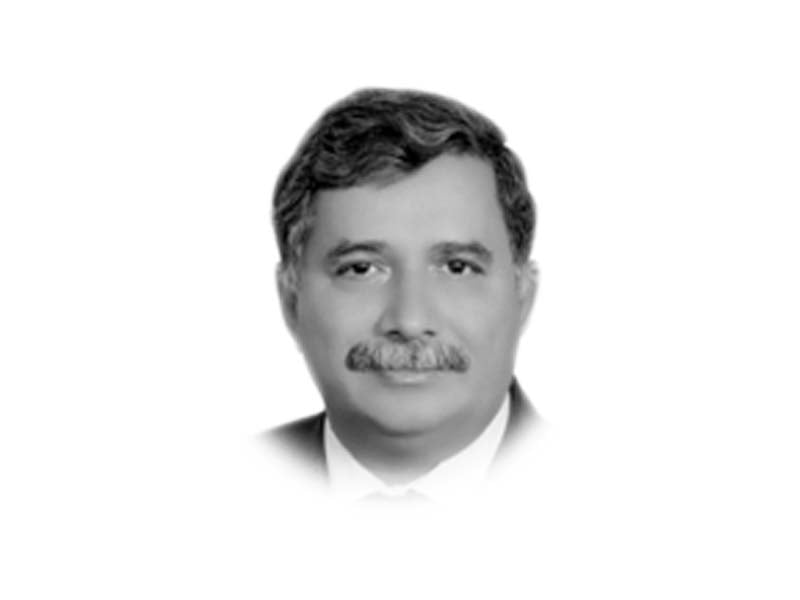
Provision of security to life, property and honour of a citizen is among the foremost duties of the state. As such in a modern state, one of the determinants of ‘good governance’ is the maintenance of peace. However, this job is always done by a state through professional bodies such as police, civil armed forces, and the army.
It will not be out of place to mention that the present concept of policing was initiated in London by the Metropolitan Police Act of 1829. In a speech introducing the Act, the home secretary, Sir Robert Peel, argued that it was “the duty of the legislature”, to “afford to the inhabitants of the metropolis... the full and complete protection of the law, and to take prompt and decisive measures to check the increase of crime”. Through the legislation that duty was given to the police.
Similarly, here, under the Police Act 1861, and Criminal Procedure Code, the police were empowered for prevention and detection of crime and maintenance of law and order, vest the Inspector General with the administration of the police ensuring his operational autonomy. However, his efforts were hampered due to a lack of financial and administrative authority. The issue of administrative, financial authority, and functional specialisation remained the contested point till the promulgation of Police Order 2002. Police Order 2002 was promulgated with an avowed objective to make police function according to the Constitution, law, and democratic aspirations of the people to redefine the police role and its duties and responsibilities to reconstruct police for efficient prevention and detection of crime and maintenance of public order.
The Order made police responsible for the prevention and detection of crime and maintenance of public order. With the making of Provincial Police Officer as ex-officio secretary to the government, police gained independence from the office of the Home Department, leaving no lever in matters of appointments and posting and transfers as well as financial matters with Home. However, after 9/11, the police in Khyber-Pakhtunkhwa (K-P) had to face formidable challenges of insurgency and terrorism.
In such a scenario, legislation, framing of policies, and provision of resources, a fundamental duty was performed by the executive, leaving operational details to the commanders. Taking up challenges all successive governments took measures to build up the capacity of the police by developing “Comprehensive Development Strategy and Post Needs Crisis Assessment Programme and Counter-Terrorism Strategy”. In their mission statement, the K-P police reiterated their aim to protect the life, property and honour of the citizens; maintain public order; and enforce the laws of the land.
The number of police personnel swelled to 75,000 in 2013 from 32,000 in 2006-07 and has approximately crossed 120,000 now. A ‘Project Coordination Unit’ was also established which empowered the police force to initiate and run its developmental schemes; and all types of heavy weapons were provided.
The Home Department under rule of law and peace buildings sector prepared Strategic Development Log Frame with the donors and aligned it with the provincial budget in 2013-2014. US Department of Justice, Bureau of International Narcotics and Law Enforcement funded nine million dollars for the construction of an anti-terrorism training centre at Hakimabad, Nowshera in 2014 and has now established another training centre and ten checkposts at Shah Kas at a cost of 18 million dollars. The Directorate of Counter Terrorism played a pivotal role by feeding the operational commander with vital intelligence to bring hundreds of terrorists to justice and in preparing a database of 3,500 militants with 350 of them being the highly wanted terrorists. The damaged buildings of the police in the whole of Malakand were constructed. In a nutshell, by 2013, a highly well-developed police system was in place to tackle the law and order situation.
The ‘Directorate of Counter Terrorism’ was renamed as ‘Counter-Terrorism Department’ as a lead agency to collect intelligence, conduct operations, and carry out operations, with the provision of advanced technology, enough reward money, and secret funds to net most wanted terrorist in 2013-2014.
The Police Order 2002, Anti-Terrorism Act 1997, and Code of Criminal Procedure (CrPC) provided all the powers to the police to deal with organised crime and terrorism. Having been equipped with all legal authority, human resources and equipment, and support of the armed forces, the K-P police had performed admirably. For their valour and performance, they have been credited with Sitara-e-Imtiaz, Tamgha-e-Shujaat, Quaid-e-Azam Police Medal, and President Police Medal. This writer takes pride in not only having Quaid-e-Azam Police Medal and President’s Police Medal but also commanding Malakand and Mardan Division from 2007 to 2010, having survived suicide attacks. He has the singular distinction wherein the maximum numbers of gallantry awards granted to police personnel were under his command during the same period. While there are many stories of successes, at times, there were also setbacks, from which lessons were learned.
The question that arises is: in case of any setback, in the field, can a chief executive of the province be held responsible or does the responsibility lie on the shoulders of the operational commanders? The obvious answer is that being fully empowered and authorised to marshal resources on the ground, and taking credit for achievements, the operational commander is also responsible. The quantum of responsibility is always commensurate with the quantum of autonomy and authority given by the law. K-P is a case in point, where former IGP Nasir Durrani (late) acknowledged: “I would also take this opportunity to express my indebtedness to the present Government of K-P for extending its full support. The government’s policy of non-interference in the operational matters is encouraging the police department to take these initiatives for better service delivery.” Therefore, in all fairness, the buck cannot be passed to the Chief Executive of the province or any other department within the Secretariat regarding any incident. Combating crime and terrorism are the chief duties of the professional bodies under the law.
Published in The Express Tribune, November 24th, 2021.
Like Opinion & Editorial on Facebook, follow @ETOpEd on Twitter to receive all updates on all our daily pieces.



1729662874-0/One-Direction-(1)1729662874-0-165x106.webp)








COMMENTS (1)
Comments are moderated and generally will be posted if they are on-topic and not abusive.
For more information, please see our Comments FAQ